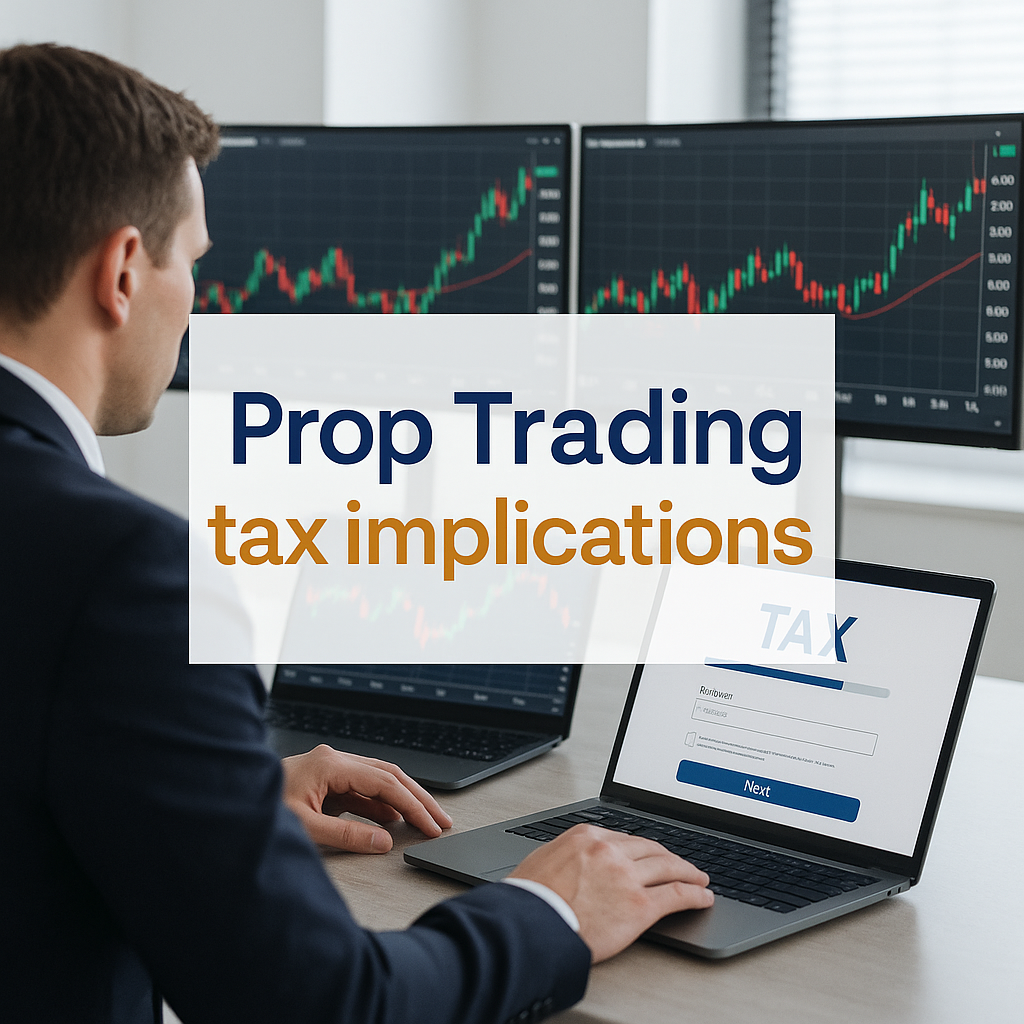Prop Trading Tax Implications: What You Need to Know
If you’re actively trading with a funded account, you must understand the prop trading tax implications involved. Many traders focus on strategies and scaling their capital, yet overlook one critical part of the process—taxation. Ignoring this can cost you dearly. Fortunately, with a little planning and the right approach, you can manage your tax responsibilities confidently and efficiently.
Why Prop Trading Tax Implications Matter
Prop traders typically receive payouts as independent contractors. Because of this, you’re responsible for reporting your income and covering your own taxes. Firms like Larsa Capital don’t withhold taxes, so staying on top of your reporting obligations is entirely up to you.
If you fail to plan ahead, you may miss out on deductions or even face penalties. On the other hand, when you track your finances from day one, you gain control over your income and future growth.
Key Areas of Focus for Prop Trading Tax Implications
1. Understand How to Classify Your Income
Different countries categorize prop trading income differently. For instance, some treat it as business income, while others see it as self-employment income. Knowing how your local tax authority classifies your earnings will help you file correctly and avoid confusion later.
2. Track Every Payout and Expense
Instead of scrambling during tax season, maintain a simple digital log of all your earnings, challenge fees, trading tools, and software subscriptions. Not only does this reduce stress, but it can also save you money through eligible deductions.
3. Set Aside Money for Tax Payments
Unlike salaried employees, you won’t see taxes deducted automatically. Therefore, it’s smart to save 20%–30% of each withdrawal in a separate account. This habit ensures you’re always ready to pay taxes without dipping into your trading capital.
How to Stay Compliant and Prepared
Managing prop trading tax implications becomes easier when you follow a system. Start by working with a tax professional who understands trading income. They can guide you on forms, deductions, and quarterly payments if required.
Moreover, use accounting software or spreadsheets to track your income. Don’t wait until the end of the year. Instead, review your finances monthly to catch mistakes early and stay organized.
Final Thoughts on Prop Trading Tax Implications
Handling taxes doesn’t have to be overwhelming. When you treat your trading like a business, you also take your finances seriously. Understanding the prop trading tax implications allows you to protect your earnings, plan for the future, and avoid unnecessary stress. At Larsa Capital, we encourage traders to manage every part of their journey professionally—and that includes taxes.

